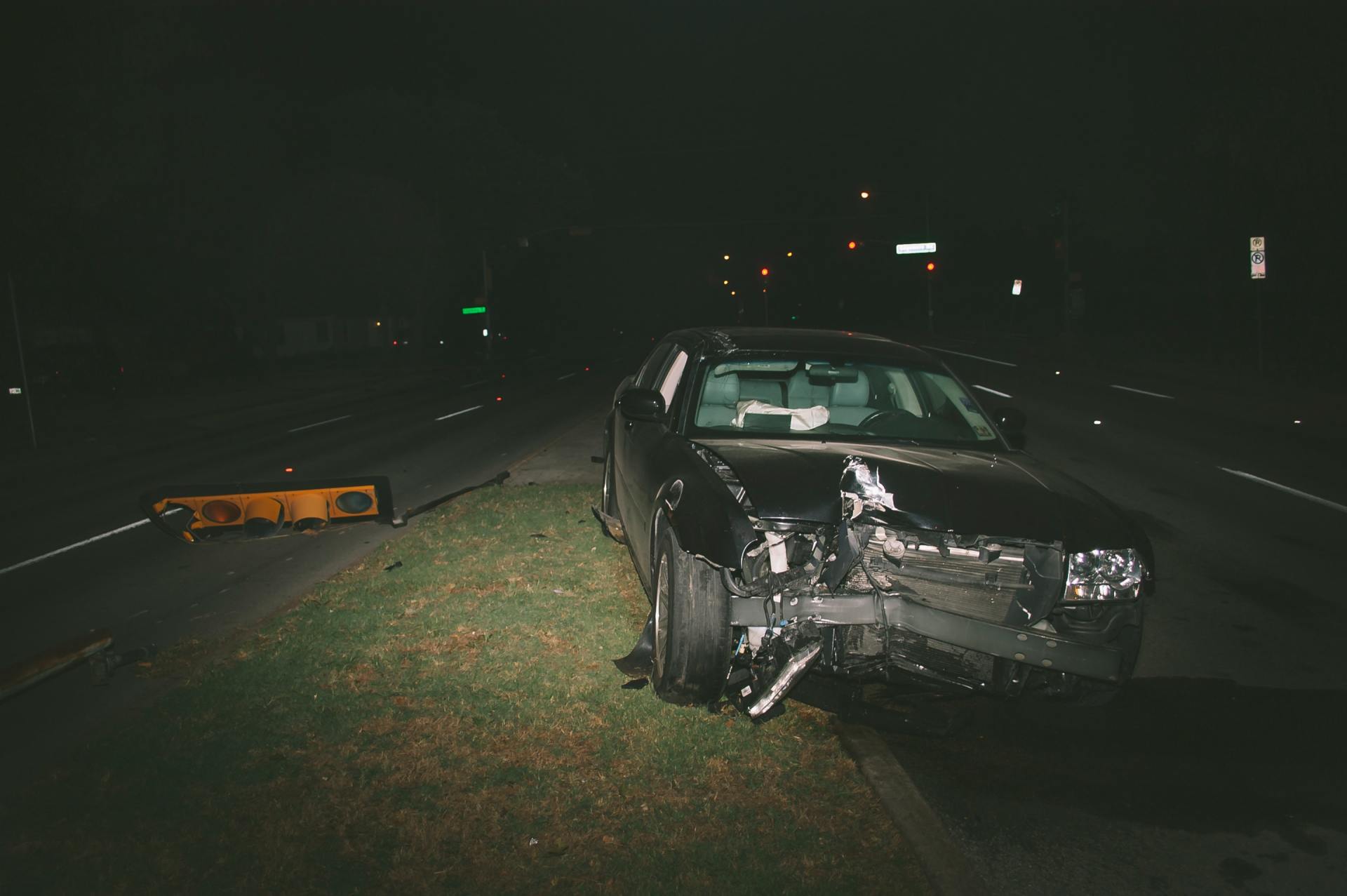Righting the Ship with PIP
Understanding Personal Injury Protection

Now that it’s the start of a New Year it might be a good time to take stock of things on the auto insurance front to see how well covered we are moving into 2021. Particularly, if you have been involved in a motor vehicle accident in the State of New Jersey, it is very important that you understand what benefits your auto insurance policy can afford you insofar as your medical treatment is concerned. New Jersey is a “no-fault” state. That means that when you are injured in an accident, you are responsible for the costs of your own medical treatment. Often, many people injured in a motor vehicle accident do not understand this – “Why should I pay? He hit me!” is a common plea heard by many a personal injury attorney in no-fault states.
What is PIP?
Fortunately, however, your auto carrier provides a policy selection to help alleviate the personal financial burden of seeking treatment for your injuries – Personal Injury Protection (“PIP”). In New Jersey, insured drivers who have PIP coverage on their auto policy can utilize PIP coverage to pay for their medical treatment in very much the same way they would otherwise use their health insurance. PIP coverage limits in NJ ranges from between the minimum of $15,000 to the limit of $250,000, depending on your selection.
When seeking treatment for the injuries you have sustained in a motor vehicle accident, it is critical to ensure that you provide all of your treating providers – be they doctors, physical therapy, or radiology offices, for example – with your auto insurance information,
in addition to your health insurance information. Every provider should be given the Insurance Company Name, Policy Number, Claim Number, and the name and contact information of the adjuster assigned to your claim. This is because, it is advisable in many cases that your treatment be billed through PIP
first, and your health insurance
secondarily. I will explain why momentarily.
When your provider bills through PIP, you will only be responsible for the deductible amount you selected, ranging from $250.00 to $2,500.00 and a co-pay amount of 20% of the first $5,000.00 in treatment. After the first $5,000.00 in medical bills, PIP picks up 100% of the medical bills, until exhaustion or cut off.
Why Treat through PIP First? The answer? – ERISA
The reason why, in many cases, you want the maximum extent of your medical treatment billed through PIP first is because some health insurance plans, particularly those provided by your employer, may be what is referred to as a “self-funded ERISA” plan. “ERISA” comes from the Employee Retirement Income Security Act of 1974, a federal law that governs retirement, health, life, and disability benefits for Americans. ERISA sets minimum standards for most voluntarily established pension and health plans in private industry to provide protection for employees in these plans. Among other things, ERISA requires plans to provide participants with important information about plan features and funding; provide fiduciary responsibilities for those who manage and control plan assets; require plans to establish a grievance and appeals process for participants to get benefits from their plans; and give participants the right to sue for benefits and breaches of fiduciary duty.
As ERISA relates to personal injury suits, providers of ERISA health insurance plans which are self-funded have a right to seek reimbursement (in a process called subrogation) for the treatment they paid for, out of the proceeds of a personal injury suit. In other words, if your health insurance plan is a self-funded ERISA plan, you treated through your health insurance, and you receive a financial recovery as a result of your personal injury claim, your health insurance can assert a lien against your recovery to be paid back for the monies they spent to cover the cost of your treatment.
Unfortunately, if you have sustained grave injuries requiring extensive medical treatment, and you have treated primarily through a self-funded ERISA plan (in other words, being “health primary”), you could see the bulk of your recovery go to your health insurance company to compensate them, instead of into your own pocket! Obviously, we don’t want that.
That is why, in most cases, it is best to have your treating providers bill through PIP first in order to minimize any residual cost which may be passed on to your health insurance provider to cover. Of course, which plan provides a cheaper co-pay and deductible is always a factor in making this determination, but provided you can swing these initial out-of-pocket costs, what you stand to save on the tail-end by treating through PIP as opposed to a self-funded ERISA heath plan can potentially lead to a significantly larger recovery at the end of your personal injury suit, not owing your health insurer reimbursement.
To determine whether your health insurance is a self-funded ERISA plan, your attorney will contact the insurer to ascertain this. In the meantime though, if you did not provide any of your treating medical providers with both your auto insurance’s PIP information and your health insurance information, you should reach out to their billing offices and apprise them of this information so as to avoid being billed unnecessarily. This most frequently happens for a hospital ER bill, as most people have not yet set up a PIP claim with their auto carrier and, therefore, can’t yet provide that information to the hospital.
What if I run out of PIP coverage?
As indicated earlier, PIP coverage begins at a minimum of $15,000 and caps at a limit of $250,000 in treatment. Obviously, the higher the amount of PIP coverage you select, the higher you can expect your monthly auto insurance premium to be. Unsurprisingly then, there are many people who choose the $15,000 minimum PIP coverage, thinking they will not be involved in an accident any time soon, and wanting to save money on their car insurance each month. Naturally, if you have minimal PIP coverage and you are still treating, you may wonder what happens if you exhaust it.
First and foremost, do not stop pursuing your medical treatment just because you have exhausted PIP. If you stop, your injuries could get worse and you may not recover as well as you would have if you had kept going to the doctor. If you do exhaust your PIP coverage though, logically, one of the first things you can do is contact your health insurance provider and find out if they will cover your medical treatment. While some of your treatment may be covered, you may still be responsible for copays, deductibles, and other out-of-pocket expenses. If so, make sure to keep track of these costs, as you may be able to include them in your personal injury claim filed against the other driver’s insurance. Bear in mind, however, as you would now be treating through your health insurance, the ERISA complications mentioned earlier could come into play.
Alternatively, if you have exhausted PIP and cannot utilize your health insurance for further treatment (perhaps because you have no health insurance, for example), another option is to discuss with your treating providers whether they would be willing to accept a Letter of Protection (“LOP”). A Letter of Protection is essentially a promissory letter sent by your personal injury attorney to your treating provider which, if accepted by the provider, allows the injured person to continue treating in exchange for an agreement to pay the bill out of proceeds of the personal injury claim. In other words, you have assigned a portion of your recovery to your doctor as payment. Unfortunately, if there is no recovery at the conclusion of the claim, the medical provider would still have the right to pursue collection efforts against the injured person, so LOPs should be entered into with care. Even so, they can be useful if an unpaid provider intends to send your unpaid bill into collections – a LOP may stop them from doing so.
Been involved in an accident?
To sum up, it is always important to have a firm understanding of the coverage to which you are entitled under your auto insurance policy, and if you have been involved in a motor vehicle accident and sustained injuries, understanding your personal injury protection benefits is particularly critical.
If you have been involved in a motor vehicle accident and have questions regarding your insurance coverage, contact the Lento Law Group today. We are committed to helping those who have sustained injuries through the carelessness of others. We will be happy to answer your questions and help you get the financial recovery you deserve!
More News & Resources











